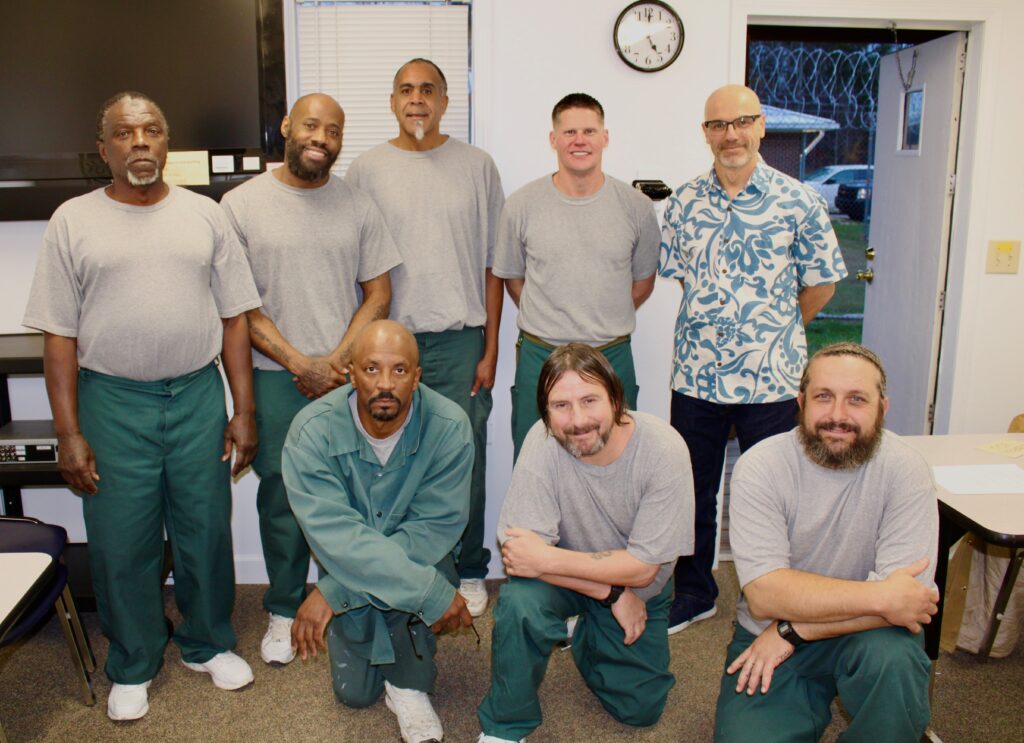Finding Temporary Peace in Prison
By Shai M. Tamari
Prison is not known as a place where vulnerability is shown, where feelings are shared, and where authenticity is on display. Yet that is precisely what occurred at Dan River Prison Work Farm in the northern part of North Carolina in Fall 2023.
For a period of two months, twice a week, I taught an undergraduate course titled “Internal & Interpersonal Conflict Management” through UNC-Chapel Hill’s Correctional Education Program. And unlike my students at UNC-Chapel Hill and Duke, these students of mine had been “behind bars” from a few years to a few decades. This wasn’t my first-time teaching in prison. I had previously done so at Central Prison in Raleigh with men on Death Row, and at the N.C. Correctional Institution for Women. Still, I was nervous coming into my first session. Not because I feared for my safety, but because I knew I was an outsider, both literally and figuratively. However, that nervousness dissipated quite quickly.
The men–my students–stepped into the classroom on that first day, held in a trailer near the entrance to the prison. Some wore smiles, others wore blank faces. Some had taken college courses for credit before, for others this would be their first time. There were seven of them, much fewer than the courses I usually teach. Still, it turned out to be the perfect number. And so we began as I often do, sitting in a circle, with no tables in between us.
For the next 15 sessions, we learned and practiced high-quality listening, discussed our conflict management style, delved into our relationship with apology and forgiveness, and explored the pain that had been inflicted on us and the pain we had inflicted on others. We talked about race, religion, and politics. We listened as others shared, and we shared while others listened. Each student wrote a weekly journal reflecting on our class exercises and readings assigned for that week.
The final assignment was to write a letter of apology. There were three options to choose from: A letter to someone we wish to apologize to and haven’t yet; a letter from someone we wish to receive an apology from (and might never receive); or a letter of apology to ourselves. Each student brought their letter to class and each one of us read it out loud. This was followed by questions and sharing what resonated with the listeners.
This assignment, just like the entire course experience, was beautiful, painful, raw, real, and healing. There was laughter, some tears, strong emotions. We, men, were vulnerable with one another, and in the process we grew stronger.
I was proud to call them my students. I was honored to be theirs.
Shai Tamari is the Founder & President of Tamari Conflict Management; Professor of the Practice and Director of the Conflict Management minor at UNC-Chapel Hill; and an Adjunct Lecturer at Duke University. He was a Rotary Peace Fellow at UNC-Chapel Hill between 2006 and 2008 (Class 5).
